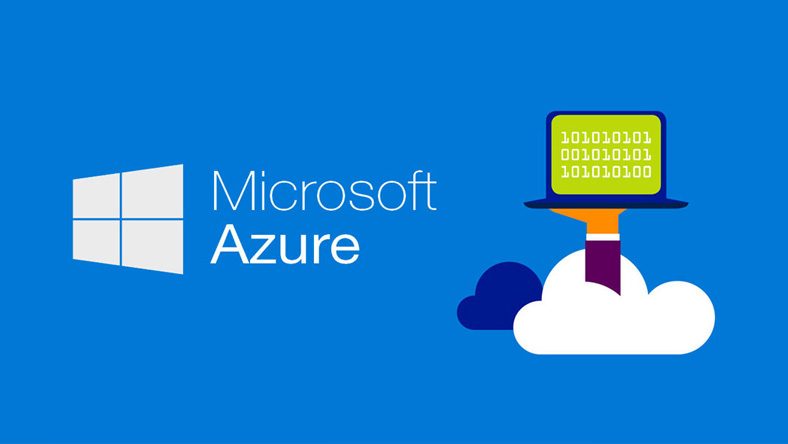Azure

Contact Form
Overview
Students Prerequisites
Course Curriculum
Duration of the Course
Instructor Profile
Overview
Microsoft Azure is an emerging market leader and one we want to help you get up to speed with.Microsoft Azure’s public cloud computing platform helps companies scale cloud resources, build intelligent apps, leverage data and save money.It includes integrated tools, templates and services to effectively build and manage enterprise, mobile, web and Internet of Things (IoT) apps.
Students Prerequisites
- Suitable for IT professionals
- Prior IT experience would be necessary for learning this technology.
Course Curriculum
Module 1: Introduction to Azure
- What is Cloud Computing?
- Azure Overview:
- Core Benefits of Azure
- Azure Services and Use Cases
- Azure Global Infrastructure:
- Regions, Availability Zones, and Paired Regions
- Azure Free Account: Setting Up and Exploring
- Azure Portal, CLI, and PowerShell Basics
Module 2: Core Azure Services
Compute
- Azure Virtual Machines (VMs):
- Creating, Configuring, and Managing VMs
- VM Images, Sizes, and Pricing Models
- Networking and Security Groups for VMs
- Scaling with VM Scale Sets
- Azure App Services:
- Deploying Web Applications
- App Service Plans and Autoscaling
- Azure Kubernetes Service (AKS):
- Introduction to Containers and Kubernetes
- Deploying and Managing Kubernetes Clusters
- Azure Functions:
- Serverless Computing Overview
- Writing and Deploying Azure Functions
Storage
- Azure Storage Accounts:
- Blob, Queue, Table, and File Storage
- Hot, Cool, and Archive Storage Tiers
- Azure Disk Storage:
- Managed Disks for VMs
- Azure Data Lake:
- Storing and Analyzing Big Data
Module 3: Networking
- Azure Virtual Network (VNet):
- Subnets, NSGs (Network Security Groups), and Route Tables
- Connecting VNets with Peering
- Load Balancing and Traffic Management:
- Azure Load Balancer and Application Gateway
- Azure Front Door
- Hybrid Networking:
- Azure VPN Gateway and ExpressRoute
- Azure DNS and Traffic Manager:
- Domain and Traffic Routing Management
Module 4: Identity and Security
- Azure Active Directory (Azure AD):
- Users, Groups, and Roles
- Single Sign-On (SSO) and Multi-Factor Authentication (MFA)
- Azure Role-Based Access Control (RBAC):
- Assigning Roles to Resources
- Azure Key Vault:
- Secrets Management and Certificates
- Azure Security Center:
- Threat Detection and Security Posture
- Azure Sentinel:
- Cloud-Native Security Information and Event Management (SIEM)
Module 5: Data and Analytics
- Azure SQL Database:
- Creating and Managing Relational Databases
- Backup, Restore, and High Availability
- Azure Cosmos DB:
- Multi-Model NoSQL Database
- Azure Data Factory:
- Data Integration and Pipeline Automation
- Azure Synapse Analytics:
- Data Warehousing and Big Data Analytics
- Azure Databricks:
- Collaborative Big Data and AI Platform
- Azure Monitor:
- Metrics and Logs for Monitoring Data
Module 6: Application Integration
- Azure Logic Apps:
- Workflow Automation
- Azure Event Grid and Event Hubs:
- Event-Driven Architectures
- Azure Service Bus:
- Message Queueing and Topic-Based Messaging
Module 7: DevOps and Development Tools
- Azure DevOps:
- CI/CD Pipelines
- Repositories, Artifacts, and Testing
- Azure Resource Manager (ARM):
- Infrastructure as Code with ARM Templates
- Azure Bicep:
- Simplified ARM Template Syntax
- Azure GitHub Actions:
- Integrating GitHub with Azure DevOps Pipelines
- Azure Application Insights:
- Monitoring and Diagnostics for Apps
Module 8: AI and Machine Learning
- Azure Cognitive Services:
- Vision, Speech, Language, and Decision APIs
- Azure Machine Learning:
- Building, Training, and Deploying ML Models
- Azure Bot Service:
- Creating AI-Powered Chatbots
- Azure OpenAI Service:
- Integrating AI with GPT Models
Module 9: Internet of Things (IoT)
- Azure IoT Hub:
- Connecting and Managing IoT Devices
- Azure IoT Edge:
- Deploying Workloads to Edge Devices
- Azure Digital Twins:
- Creating Digital Models of Physical Environments
Module 10: Cost Management and Governance
- Azure Cost Management and Billing:
- Tracking Usage and Setting Budgets
- Azure Policy:
- Enforcing Compliance Standards
- Azure Blueprints:
- Creating Reusable Resource Configurations
- Azure Advisor:
- Recommendations for Cost, Security, and Performance Optimization
Module 11: Advanced Topics
- Disaster Recovery and Business Continuity:
- Azure Backup and Site Recovery
- High Availability Architectures
- Azure Arc:
- Managing Hybrid and Multi-Cloud Environments
- Azure Blockchain Service:
- Building Decentralized Applications
- Azure Quantum (Optional):
- Quantum Computing Basics
Module 12: Capstone Project
- Build and Deploy a Real-World Application:
- Example Projects:
- E-commerce Platform
- IoT Dashboard with Analytics
- AI Chatbot with Azure Cognitive Services
- Use Core Services: Compute, Storage, Networking, and Databases
- Implement Monitoring, Security, and Cost Optimization
- Example Projects:
Duration of the Course
40 Days (also available fast track course with short term duration)
- Flexible Schedules
- Live Online Training
Instructor Profile
- Training by highly experienced and certified professionals
- No slideshow (PPT) training, fully Hand-on training
- Interactive session with interview QA’s
- Real-time projects scenarios & Certification Help
- 24 X 7 Support
